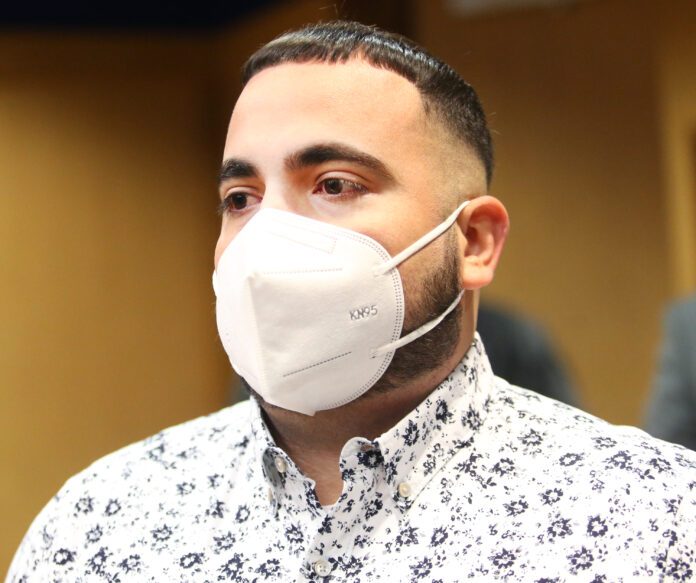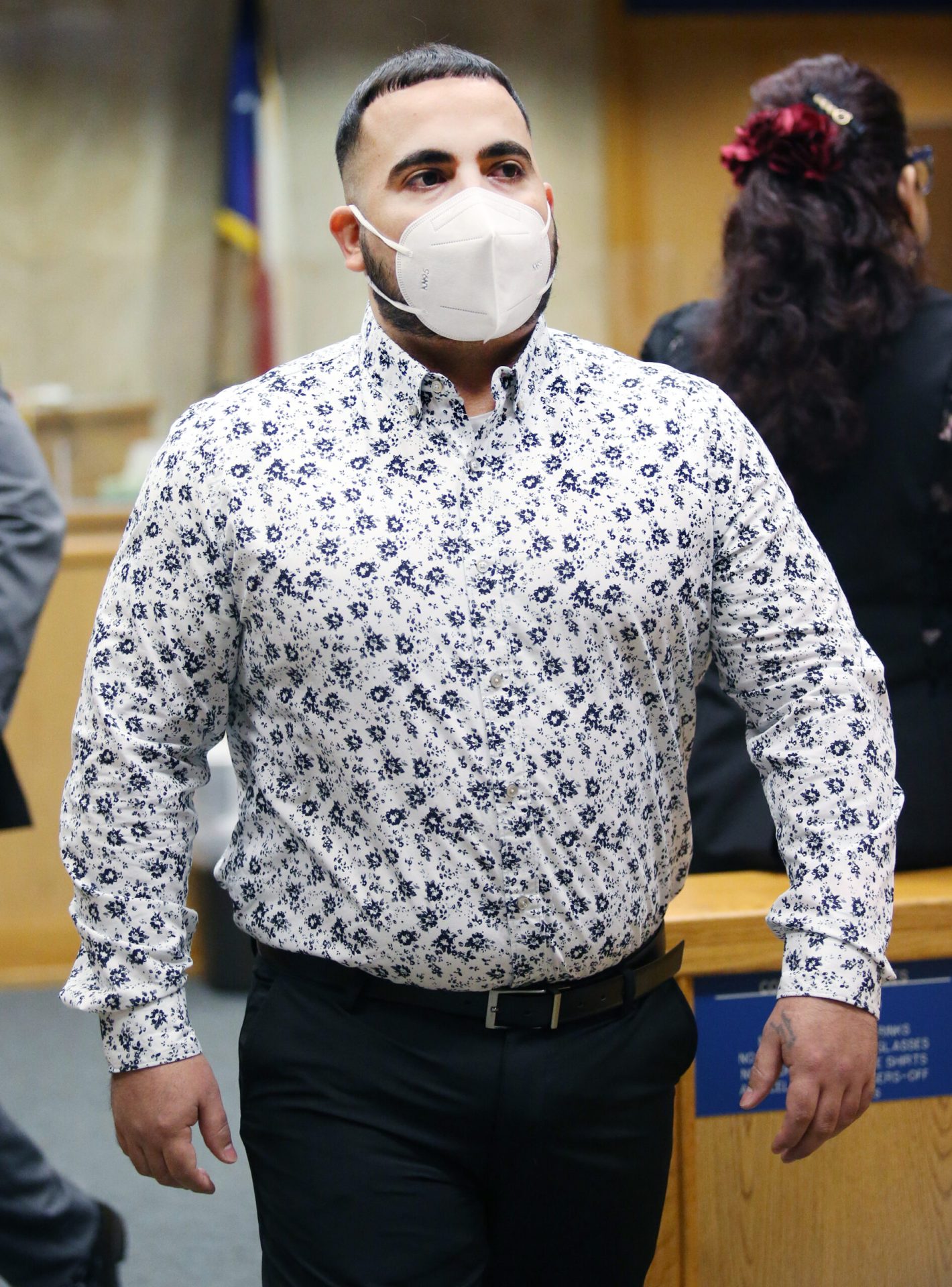
|
Only have a minute? Listen instead
Getting your Trinity Audio player ready...
|
The 13th Court of Appeals on Thursday ordered a new trial for the 33-year-old Mission man convicted of a 2016 mass shooting at a Palmview H-E-B.
The appellate court ordered the new trial for Raul Lopez because his Miranda rights were violated by a Palmview police detective and that had jurors not seen a video of that interrogation, they may have determined he was insane at the time of the shooting.
“Because Lopez was not provided with sufficient Miranda warnings and this error was harmful, we reverse and remand,” the order stated.
Lopez’s attorneys brought an insanity defense during his March 29, 2022 trial. Jurors rejected that defense and convicted him of murder, a count of attempted capital murder, three counts of attempted murder and three counts of aggravated assault with a deadly weapon.
State District Judge Fernando Mancias gave him two life sentences and a combined 90 years in prison on April 28, 2022.
Lopez shot 19 times from a Desert Eagle through a window at 3:30 a.m. on Nov. 28, 2016 into a breakroom at the H-E-B on Goodwin Road and U.S. Expressway 83 where overnight workers were eating.
Lopez killed 48-year-old Mario Pulido, who was shot nine times, and injured Billy Joe Martinez, then 33, Rafael Martinez, then 37, and Frailan Garza, then 51.
Two court-appointed experts testified that he suffered from paranoid schizophrenia during the two-week trial where jurors convicted Lopez after around 10 hours of deliberations.
Testimony showed the man heard voices and was so paranoid of either the government or drug cartels that he only communicated with his family by writing on paper that he later burned. His symptoms became more severe in the lead-up to the shooting.

Lopez claimed in his appeal that he wasn’t advised he could have a lawyer present during questioning and that he didn’t voluntarily waive his Miranda rights because he was in a state of psychosis and that his statement was coerced. He also claims he invoked his right to counsel during the interrogation.
“The interview was almost two hours long, and it was played for the jury,” the order stated. “It is this recorded statement that Lopez argues harmed his insanity defense.”
That document said while the detective advised him that he had the right to obtain advice from a lawyer prior to interrogation and that one may be appointed to him before interrogation, he was not informed that he had a right to have a lawyer present during questioning to advise him.
“Here, the record provides that Detective Jurado did not inform Lopez that he was entitled to a lawyer during questioning,” the order stated.
And when Lopez asked where his attorney was — more than once — the detective failed to advise him he had the right to an attorney during questioning.
“Instead, Detective Jurado responds that Lopez ‘decided’ to talk to Detective Jurado and that Detective Jurado did not force Lopez to talk to him, implying that Lopez did not have the right to counsel during questioning,” the order stated.
The admission of the interview was a constitutional error, the appellate judges ruled.
At trial, the state used the interrogation to emphasize Lopez’s rational state of mind during his confession.
“Thus, the State’s argument is tantamount to an argument that Lopez was sane during the interrogation, and a jury would have been able to draw such a conclusion,” the order stated.
This was heavily emphasized throughout the trial, including during testimony from medical professionals who specialize in mental health.
“Accordingly, we must conclude that the jury was likely influenced by the confession on the issue of insanity,” the order stated.
The appellate judges found that had the jury not heard the confession, they would be less likely to find that he was sane at the time of the shooting because there was evidence that Lopez was acting irrationally immediately after the offense.

There was also a lot of testimony about Lopez’s paranoia and multiple experts confirmed he transitions between rationality and different mental states like paranoia, anxiety and illusions.
And one expert testified that Lopez suffered mental illness and he did not understand what he was doing was wrong.
“Furthermore, no expert examined Lopez immediately following the shooting,” the order stated.
The appellate judges were unable to determine beyond a reasonable doubt that Lopez’s confession did not contribute to the jury’s rejection of his insanity defense.
“We sustain Lopez’s second issue, and we remand the cause to the trial court for a new trial,” the order stated.



